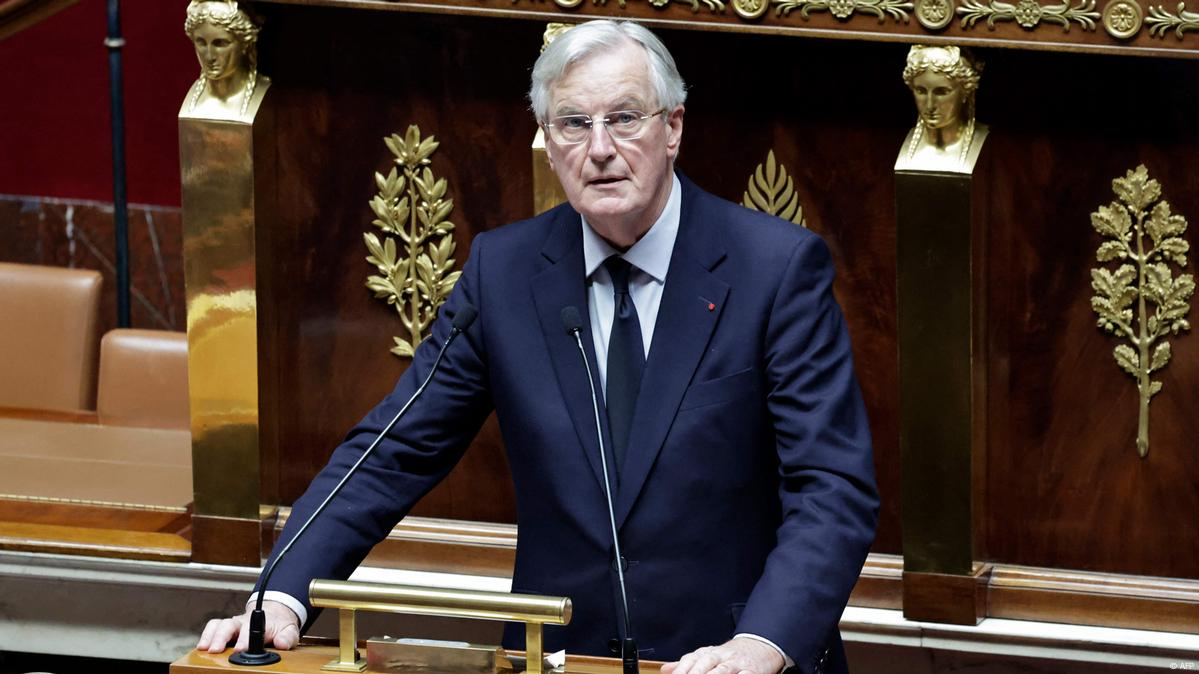French Prime Minister Michel Barnier announced his resignation on Thursday following a no-confidence vote by far-right and left-wing lawmakers, further plunging France into political turmoil. His tenure will be the shortest in modern French history, ending as he formally submits his resignation at 10 a.m. local time (0900 GMT).
The no-confidence vote was a response to Barnier’s attempt to push through a controversial budget proposal without parliamentary approval. The proposed budget aimed to cut €60 billion ($63 billion) to reduce France’s widening deficit, a move criticized by Marine Le Pen’s far-right National Rally for disproportionately impacting working-class citizens.
A Crisis in Leadership
Barnier’s resignation marks a historic political moment, with no French government losing a confidence vote since Georges Pompidou’s administration in 1962. The crisis highlights growing divisions within French politics, as well as the diminished authority of President Emmanuel Macron, who has faced mounting calls to step down. An online poll conducted after the vote revealed that 64% of voters believe Macron should resign, though his mandate extends until 2027, and he cannot be forced out of office.
The political chaos stems from Macron’s contentious decision to call a snap election in June, leaving the current parliament fractured and unruly. Marine Le Pen blamed Macron for the ongoing instability, saying, “The dissolution [of parliament] and censorship [of the government] are the consequence of his policies and the considerable divide between him and the French.”
Economic and Political Fallout
The no-confidence vote has left France without a stable government or an approved budget for 2025. While the constitution allows for special measures to prevent a government shutdown, uncertainty over leadership is expected to weigh heavily on the economy. French sovereign bonds and stocks have already felt the impact, with the risk premium on French debt reaching its highest level in over 12 years.
Analysts at Société Générale warned that prolonged political uncertainty could dampen investment and consumer spending. “Until potential new elections, ongoing political uncertainty is likely to keep the risk premium on French assets elevated,” the analysts noted.
Xavier Bertrand, a prominent conservative politician, expressed frustration over the situation. “It’s as if the two extremes, [the hard-left] France Unbowed and the National Rally, have become the center of political life,” he remarked.
A Race to Restore Stability
President Macron is reportedly aiming to appoint a new prime minister swiftly, with sources suggesting an announcement could come before Saturday’s Notre-Dame Cathedral reopening ceremony, which U.S. President-elect Donald Trump is scheduled to attend. However, any new premier will face the same challenges in navigating a deeply divided parliament, where new elections cannot be held until July.
The broader implications extend beyond France, as the political upheaval adds to the European Union’s existing challenges, including Germany’s coalition government collapse. With critical economic policies on hold and widespread voter dissatisfaction, the crisis underscores the growing polarization in France’s political landscape.

















